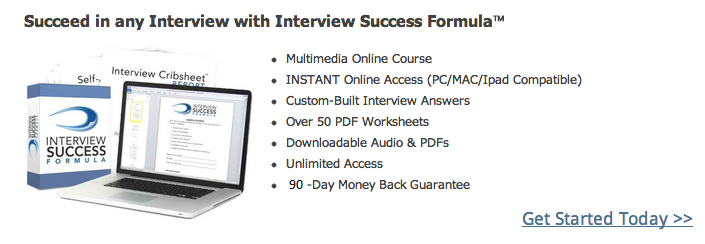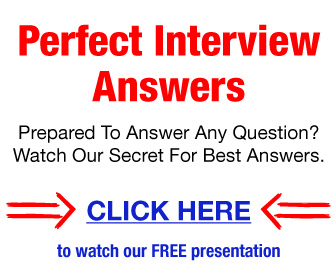 Preparing for a marketing interview is different than it used to be. The marketing field has experienced immense changes in recent years as advertising has moved from traditional media (print) to the online channels (websites, email marketing, social shopping, etc). Even in the holiday shopping season, we see record amounts purchased online and not only at home with a PC but also via a smartphone from a customer’s car or on a train or bus.
Preparing for a marketing interview is different than it used to be. The marketing field has experienced immense changes in recent years as advertising has moved from traditional media (print) to the online channels (websites, email marketing, social shopping, etc). Even in the holiday shopping season, we see record amounts purchased online and not only at home with a PC but also via a smartphone from a customer’s car or on a train or bus.
These changes have catalyzed a major shift in the skill sets desired by employers seeking marketing professionals. And you must be prepared to demonstrate how you've adapted. Great communication skills alone will not necessarily even get you invited to an interview. Rather, a candidate who has a balance of skills in communication, marketing strategy, and technology will obtain the highest amount of interest.
Due to the changes I've cited in the previous paragraph, marketing professionals who graduated 5 to 10 years ago, prior to the advertising-web-technology convergence, may find it harder to obtain an interview. Many more job ads are posted for digital marketing manager, social media marketing specialist, web marketing analyst, SEO strategist than ever before. For this group, the best interview preparation is to ensure that your job skills have not stagnated. But skill gaps are not the primary challenge of a marketing career. Competition is.
Over the past year, I've worked with more marketing professionals in my consulting business than any other field. This always seemed odd to me. After all, looking for a job employs the same principles that guide the marketing of any product or service. However, my understanding of the challenges of obtaining a marketing position changed after I began receiving competitive summaries after a job application, which are sometimes sent out by job boards. For a digital content manager in the marketing department, one employer received 1,300 applicants in a 200-mile radius with an average of 5 to 9 years experience. I recall another customer applying to an entry-level marketing associate in the northern suburbs of Chicago that had 68 applicants, which is an incredible amount of competition by most standards. If job seekers are applying to jobs in Chicago from as far as 200 miles away, we can readily see there is a massive oversupply of available talent. This dynamic changes how a job candidate needs to prepare for an interview.
One would think that an employer would stop accepting applicants after a few hundred applicants. Perhaps they want to stockpile resumes. Or, more likely, they are becoming highly selective. I can't stress this enough. Since, the marketing field is industry sensitive, product knowledge is an important consideration when selecting a candidate to interview. If the products or services being marketed are complex in nature, then product knowledge is not only important, it is critical. A degree or experience alone may not get you an interview. So, a job candidate needs to be cognizant of the unstated, competitive factors in a job ad. If you are only looking at the basic job requirements and not the company’s description, you are not properly preparing for the job application. You must go to the employer's website and read through its products & services, as well as its press releases to get a handle on what the company does. Then, you have to ask yourself, can I generate five ideas on how to better market this company? If you can't, you are at a disadvantage or have not studied the company enough.
When an employer can obtain hundreds of job applicants, it will employ different methods to filter out the non-qualified, partially qualified, or no-go candidates (i.e., money, location, scheduling conflicts, etc). Large companies will contract with external screening companies who will pre-interview candidates and pass on to the employer the ones who passed the pre-screening test. There is a downside to this approach. The interviewers read from scripts and usually have no knowledge of the job or company. They are seeking canned answers. So, the interviewee must understand who they are talking to and answer the questions accordingly. Sometimes the questions asked are rather strange and seem to have no bearing on the job. For example, What would you wear to the Lyric Opera? Now, there are plenty more of them. There's no way to prepare for these questions because there is no right or wrong answer. These questions are simply used to compare and filter out too many job candidates. My suggestion is always to answer these questions in a humorous way. Most people want to work with people who have a sense a humor so if you show this in an interview, it will usually position you in a positive way for the next step of the hiring process.
After all the screening interviews are completed, and a candidate is invited to the employer's or ad agency's office, she will typically interview with HR, work team members and management. At this point, the interview plays out more realistically. After a discussion of the job (e.g., skills and the typical work day), the questions tend to focus on the clients. One of my customers interviewed with an ad agency that had a very large account with a very well known, consumer goods manufacturer who was launching a massive social shopping campaign on Facebook. So, the discussion was about the client and how she would implement a campaign. Another customer of mine interviewed for an Associate Marketing Manager for a well known insurance company. Much of the discussion was about her ad agency experience and how well she managed outside vendors since the company farmed out all the marketing communications work to adverting/public relations agencies. I had another customer who was a Product Marketing Manager for a software vendor in travel industry who had 8 interviews and was given 3 assignments, but this is rare.
One thing in common with all the onsite interviews was the person who got hired didn't simply answer questions, she established a commanding and attractive image that said I am worth the high salary you will pay me. So, dress for success.


